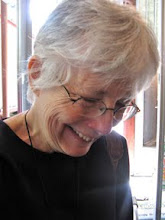 The following is the first part of the second meditation.
The following is the first part of the second meditation.I’m willing to bet we have all heard this quote: Faith is a journey, not a destination. Most of us have experienced that journey for ourselves. It’s not always a pleasant sight. It’s not always a comfortable trip.
Explorers are people who live for the journey. They will tell you that the joy of discovery outweighs any risk of getting lost or changed. But feeling lost is scary. And being changed can make you wish you’d never gone down that road at all.
These are some of what I like to call the universal truths about our faith that we are often all too eager to forget. So lets take a journey of our own, as explorers, discovering some of these universal truths, to see if they actually do ring true for us.
First, The central assertion of our faith is that the way of the Cross is the way of life. Not that we have to be physically nailed to a wooden plank, but that we do have to die. Specifically, while we are still living, we have to die to self, and only by doing that do we live. Just about everything about our faith has an ironic twist, and this is just the beginning.
We can live for others, and only by doing that, we learn love. We can deal with life as it is — wounds, pains, storms, wars, injustices and our own shortcomings — and only by doing that, discover life as God intends it to be. We aren't called by the Cross to escape life, but to embrace it.
Escape life. I talked a little about that this morning. After all doesn’t it say in the Bible we may in this world but not of it?
Well here’s one example: How many of us have, at one time or another tried to put Jesus in the role of scapegoat? We load our sins on him. He’s the savior. That’s his job. What if we have it wrong? What if his job as savior means showing us the courage to confess our sins, to bear their consequences, to seek God's mercy, and to start fresh. New Life. New Life. Now that would qualify as Good News.
Here’s another quote: Faith is a journey of infinite variety. Some of us have learned over the years not to project our own faith experiences and preferences onto others. There are many paths to God and all of them are valid. But in just about every faith tradition, except maybe Buddhism, there will be someone in charge who says: Faith has to proceed a certain way, follow certain rules or achieve certain ends.
In Texas they say: “Well I’ll tell you what…” Well, I’ll tell you what: whoever says that is just a bully. Trying to take away your freedom in order to feel better about himself.
Some people think that God had called us to rule the world and the Bible is our instruction book for how we can do that. There are those who actually believe that. You probably know a few. In that scenario, We could set rules, write a manual on correct procedures, worry about orders of ministry and the shape of liturgy. Rubrics would be big. Black would be black and white would be white, and we would not have to be wallowing in all those gray areas of life. It might be nice, but not real.
For myself, I think Jesus said Yes to his call from God before he understood everything that call meant. In fact, may not have understood it completely until the night before he died.
As much as we try to make it so, we simply are not members of a perfect institution started by a perfect man. We, too, have heard a puzzling call. We are trying and failing, and learning as we go. We, too, are being sent to the frontier of our capability, way beyond comfort and safety. Way beyond our understanding.
We, too, will figure it out and then realize that what we gave along the way was all that God ever wanted. Now that would qualify as Good News.






